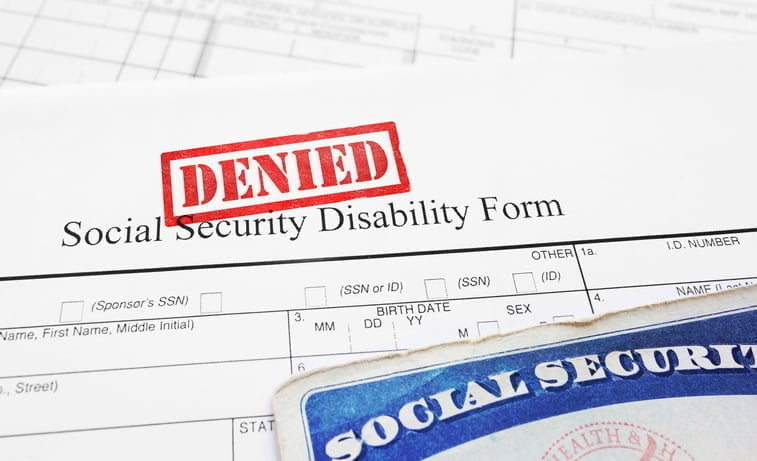We talked last month about a couple of charities that Oxner + Permar is proud to work with, and this month we thought we’d share another. A Simple Gesture is a wonderful program dedicated to making sure that food banks and pantries are fully stocked with everything they need to help serve the community. While this program has a national reach, we work directly with the Greensboro branch to ensure that we’re doing our part for our community.
Participation is, as the name suggests, simple. But it makes a huge difference! Every month we give our employees little green bags. When they go to the grocery store, the just need to buy an additional nonperishable food item to fill the bag. Then, once a month, a volunteer comes to collect all of our full green bags. They distribute the bags to organizations such as Out of the Garden, The Greensboro Urban Ministry, Backpack Beginnings and Jewish Family Services.
All of the organizations that A Simple Gesture donates to have waiting lists to fill. It makes us happy to know that we’re helping to alleviate some of that need. If you’re interested in helping out or donating to A Simple Gesture, get your company involved, or sign up as an individual! Volunteers will drive to your house to collect your green bag, which means you can give without having to take time out of your busy routine.
I’ve heard a lot of different opinions about uniforms. Some workers don’t enjoy wearing them: They say they’re not comfortable or that they lack individuality. One client mentioned to me that they didn’t like their uniform because it was just plain ugly. Other people love their uniforms: They say they’re comfy, that they make them look professional, or that it allows them to not have to think about what to wear. Regardless of how you feel about uniforms, we can all agree that none of us want our uniforms to make us sick.
Unfortunately, that’s what seems to be happening with American Airlines’ new uniforms. The airline company rolled out their new uniforms in September to more than 70,000 employees. Since then there are reports that as many as 2,000 employees have complained of sickness. With symptoms such as rashes, itching, headaches, and eye irritation, the union is already calling for a recall of the uniforms.
Although around 350 employees have already filed formal complaints, so far the uniform manufacturer’s response has been to offer uniforms made in different materials. They’re apparently working on a 100% cotton alternative uniform.
While irritation from a uniform may not strike you as something that needs a workers’ compensation claim, this is a type of injury covered by workers’ compensation. If you or someone you know has a uniform-related workers’ compensation claim, don’t hesitate to reach out to us with questions.
So you’ve been injured at work. You file for workers’ compensation, and you receive a doctor appointed by the insurance company. You’re thinking, “Great! My workers’ compensation process is going smoothly so far!” But then you notice the address of your doctor. They live in Raleigh, and you live in Wilmington. That’s a solid two-hour drive away, possibly longer if there’s a lot of traffic (and let’s face it, there’s probably going to be traffic). Are they allowed to do that? Do you have to see this doctor?
Here’s the thing: The workers’ compensation carrier is allowed to appoint whichever doctor they see fit; however, there are a couple of steps you can take to make this process less of a hassle.
Don’t let the insurance company push you around. If you’re appointed a doctor who lives far away, make sure you are taking the proper steps to receive reimbursement or to be assigned a doctor who is closer. Working with an experienced attorney can help make sure you’re on the right track and that someone is on your side fighting for your rights.
Unfortunately, the chances of winning a workers comp appeal is impossible to say for sure. Every situation is different; therefore, factors and variables will affect everyone’s chances differently.
We’ll give you a few statistics for the workers’ comp appeals process. When a compensation claim is at the reconsideration level, there’s an 85% chance it will be rejected. At the hearing level, there’s a 50/50 chance a claim will be rejected. However, there are things you can do to increase your chances. Good medical evidence and a capable workers’ compensation attorney will increase the likelihood of your workers’ comp appeal succeeding.

Many factors are considered when reviewing an injured worker’s case, such as whether or not your workplace injury has worsened over time. They will also likely look at whether or not you’ve been following the proper procedures.
If you’ve been hurt on the job, it’s not always easy winning compensation claims. However, there are ways to improve your chances of getting paid.

It is crucial to ensure that you are keeping your records up-to-date, and an attorney can help ensure that you stay on the right track. The presence of an attorney can increase the chances of your appeal succeeding. However, it’s also a good idea to work with an attorney because we can help you navigate your claim and ensure you’re doing everything to receive the compensation benefits you deserve.
The process of appealing a decision can be stressful and frustrating. Fortunately, there are many resources available to help you navigate this process. Your attorney should be able to answer questions regarding the appeal process, including whether or not you have grounds for an appeal.
An experienced lawyer who understands the law and knows how to use it effectively can help you win your case.
If you don’t understand the law, you may not realize that you’ve been denied benefits. Or you may not understand the difference between a denial and a dismissal. Either way, you may feel confused and frustrated.
The amount of money you receive depends on how long you have been disabled and the extent of your injuries. It may also count on what type of disability benefit you received before filing for workers’ comp.
If you win your appeal, you should expect to receive benefits covering medical costs and lost wages. However, if you lose your appeal, you won’t receive any more benefits than you would have received had you never applied.
What is it that sets your attorney apart? Have they won any special awards? Do they have more experience than others? How can you know if your attorney really is the best?
There are certain awards and accreditations that attorneys receive that prove they go the extra mile, and that they’re truly as good at their job as they claim to be. We’ve talked in past blogs about Board Certified Attorneys. However, Board Certification is not the only award an attorney can receive. Have you ever heard of the Million Dollar Advocates Forum?
You might not realize straight away that members of the Million Dollar Advocates Forum are lawyers. You might be imagining an exclusive club of rich and powerful celebrities—and you’d be partially right! The Million Dollar Advocates forum is a very exclusive group: fewer than 1% of attorneys in the U.S. are members.
So what does it take to become a member of the Million Dollar Advocates forum? You have to have won a trial with a verdict or settlement of at least $1 million. If an attorney can achieve this, then they will have proven their ability to get superior results in complex court cases.
Oxner + Permar has multiple attorneys on staff who are members of the Million Dollar Advocates Forum, which means that when you work with us, you’re working with attorneys who have the experience and capability to take on any case. They know how to navigate the intricacies of workers’ compensation law and obtain superior results.
If you have any questions about your workers’ compensation claim, or would like to get in touch with a member of our outstanding team, don’t hesitate to give us a call.